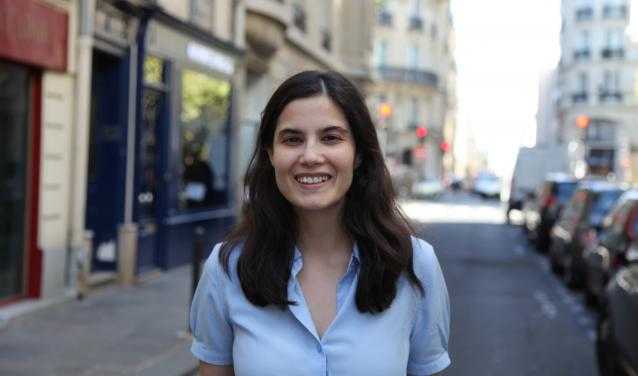Home>“More than half the world’s population live in cities”

12.10.2015
“More than half the world’s population live in cities”
Meenakshi Raina is an Indian student enrolled in the Master of International Energy programme at the Paris School of International Affairs at Sciences Po. She is passionate about sustainable development and climate change issues, and a keen participant in the Make It Work initiative.
- Sciences Po: Meenakshi, you were born in India and began your studies there before choosing Sciences Po for your Master’s programme. Why this choice?
Meenakshi Raina: In India, I completed my Bachelor of Science degree majoring in Botany, followed by studies in planning and entrepreneurship. I worked in the renewable energy sector for a while, then I started an NGO focused on green energy and sustainable development. I soon became aware of the problems related to access to energy and its importance for economic development, and felt the need to learn more.
I enrolled at Sciences Po because I thought it was the best place to study these subjects. It was one of the few universities around the world that offered a Master's in International Energy, and some of the world’s leading experts in the field of energy teach here. The teaching is great and combines both academic and professional approaches. I think it was this unique approach that attracted me to Sciences Po.
- Sciences Po: Over the course of your studies, you have developed a strong interest in energy and environmental matters. Why?
Meenakshi Raina: In a world where we are confronted by the risks of climate change, it is only natural to consider the impact of any sector on the environment. I believe that this challenge has introduced a new paradigm in which questions about the future of energy and the environment are interlinked. The goal of limiting warming to within two degrees will have substantial impact on the energy sector, especially if we consider its impact on the fossil fuel industry through stranded assets and/or gradual decarbonization of the global energy mix.
This understanding of interconnection heightened my interest in studying the impact of the environment on the global energy system. For example, what impact could environmental regulations have on future investments in the energy sector?
- Sciences Po: At Sciences Po you got involved in Make It Work, a student simulation of the COP21 negotiations. What was your role in this initiative? What did you gain from the experience?
Meenakshi Raina: Make It Work was an opportunity to experience first hand how climate change negotiations might unfold during COP 21. During the mock negotiations, I was part of the Forest delegation and also a journalist representing the National Geographic Channel.
Make It Work was innovative; the role given to non-state actors changed our view of traditional COP negotiations. The idea of actors was redefined, which challenged the system, and new, unique solutions were created both within the text and in the form of ideas and concepts. We all wanted to make it work! I feel that the initiative was transformed from a student simulation to a proper “Make It Work” movement and I am happy to say that I am part of it.
Related links
Learn more on the Make It Work initiative
Learn more about graduate programmes at Sciences Po